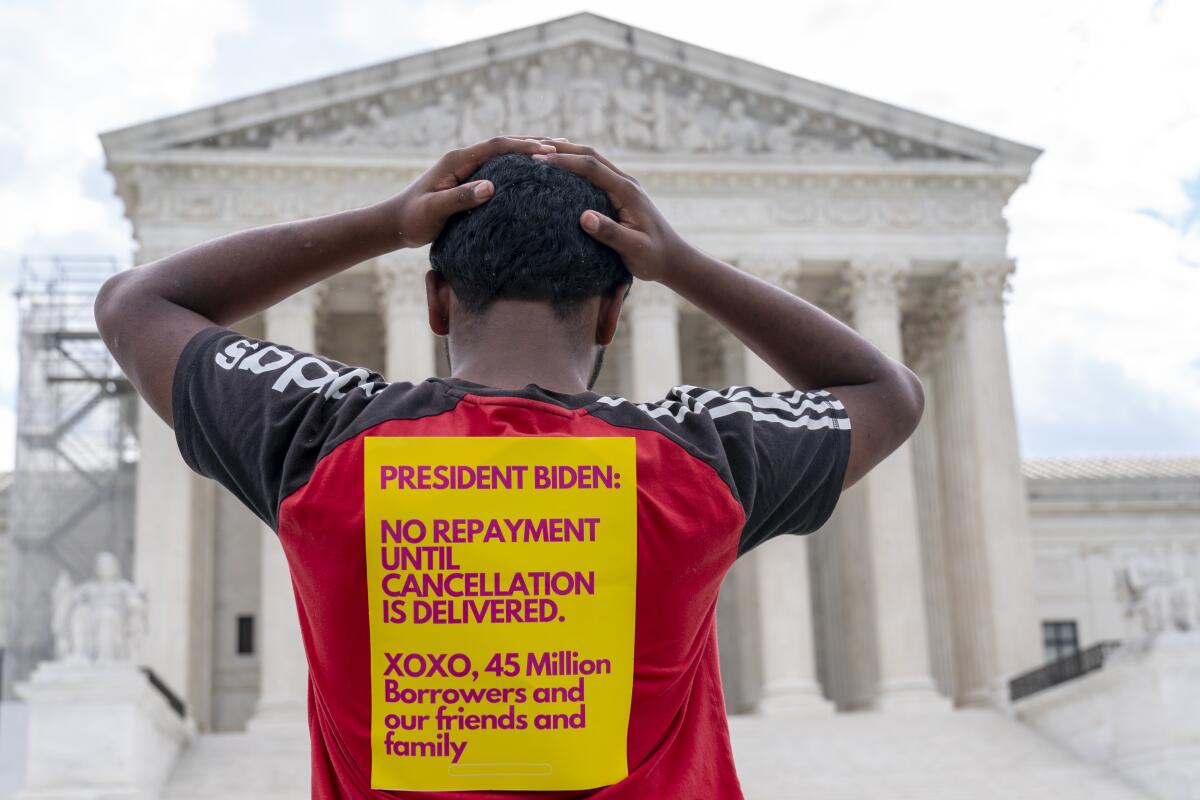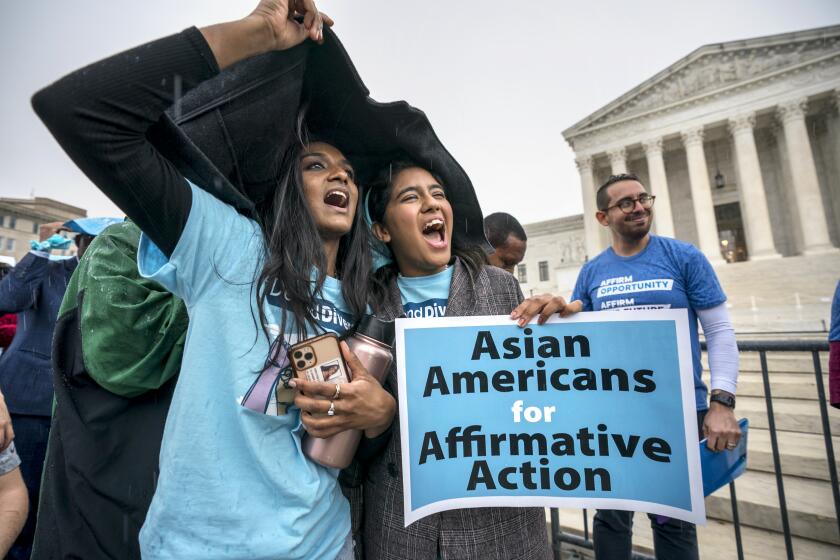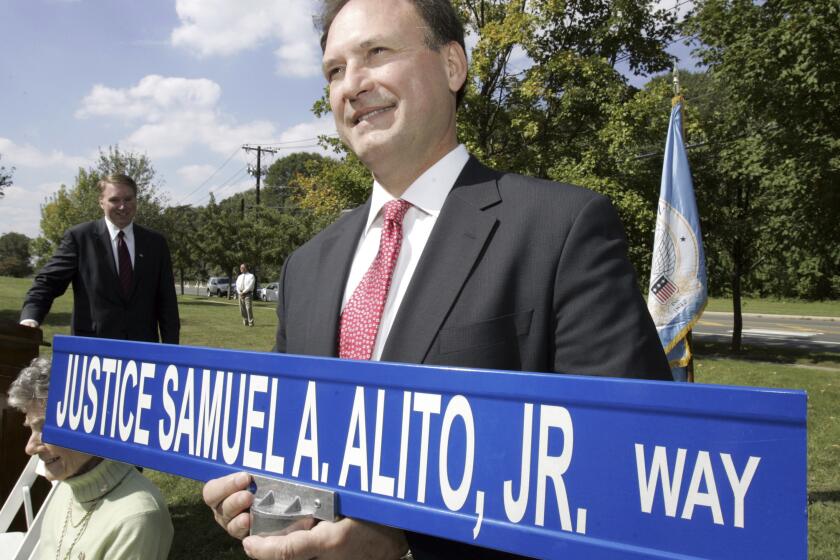Opinion: Yes, the Supreme Court has taken away rights and resources. But it’s so much worse

Just a year after the U.S. Supreme Court terminated women’s constitutional right to an abortion, it dealt a triple blow to our collective social fabric in one broad sweep with rulings that undid affirmative action in college admissions, weakened LGBTQ+ Americans’ protections against discrimination and struck down the Biden administration’s college debt forgiveness.
Considered together, these decisions all deprive relatively disadvantaged groups — women, Black and brown Americans, LBGTQ+ people, and lower-income college students and graduates — of legal and other resources that improve their welfare as well as their sense of belonging.
More than just “who gets what,” the court’s rulings affect who feels recognized as a worthy member of our society. Dignity is an essential dimension of well-being that is often overlooked in our materialistic culture. Research has shown that it impacts our health, feelings of belonging and willingness to contribute to society.
If they truly want a diverse student body, colleges and universities must eliminate all other preferential admissions policies, especially for legacy applicants.
For many women, the court’s decision last year in Dobbs vs. Jackson Women’s Health Organization symbolizes the subordination of their bodies to a patriarchal order in which their sovereignty over the course of their lives is deeply altered. Similarly, for many Black, brown, LGBTQ+ and lower-income young people who borrowed to support their studies, the end of the court’s latest term will be painfully remembered as an assault on their prolonged effort to gain full membership in American society despite the odds.
Since the latest decisions, my former students who gained access to college and the middle class thanks partly to affirmative action have been expressing deep disappointment in what they see as a “broken contract.” The court’s decision in Students for Fair Admissions vs. Harvard undermined their belief that good-faith efforts and hard work could be rewarded with full social and economic integration.
As for my LGBTQ+ mentees, they were already reeling from escalating attacks in Republican-controlled states. The Supreme Court’s 303 Creative decision, which deemed a web designer’s supposed freedom of expression more important than their equal rights, left many with mounting anxiety about their position in America, forcing them to reconsider their already fragile faith in our national covenant.
These decisions go beyond revoking rights and violating trust. They raise questions about how these members of the middle class will go on pursuing their callings and contributing to the education and upward mobility of marginalized groups. Their personal commitment to these goals is priceless and essential to reducing inequality in American society. It will not be easily supplemented, revived or replaced.
The conservative who wrote fiery opinions overturning Roe vs. Wade and dissenting on LGBTQ+ rights can’t stand criticism for his free fishing trip or anything else.
The conservative justices appeal to a view of the American past grounded in heroic visions of individualism and anti-state attitudes — ideals the country allegedly was built on and must continue to celebrate today. Yet a shared commitment to a collective vision of freedom for all is equally part of our identity and history.
While the policy implications of these rulings have been thoroughly covered, we also need to pay heed to their repercussions for our collective quality of life. We should consider their impact not just on access to resources and protection from discrimination but also the broader message they send about whose past sufferings should be acknowledged and compensated, and how much weight should be put on the history of each group as we shape our shared future. Legal and policy decisions that stigmatize and deny recognition to vulnerable groups make that future more precarious for everyone.
Michèle Lamont is a professor of sociology, African and African American studies, and European studies at Harvard and the author of the forthcoming “Seeing Others: How Recognition Works — and How It Can Heal a Divided World.”
More to Read
A cure for the common opinion
Get thought-provoking perspectives with our weekly newsletter.
You may occasionally receive promotional content from the Los Angeles Times.












